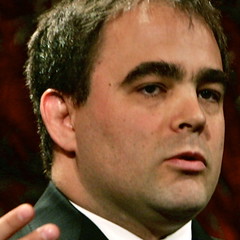
Geordie Rose
D-Wave Systems Inc.
Special purpose superconducting quantum processors for
disruptively accelerating machine learning
Any system that could be considered intelligent must be able
to learn. Unfortunately teaching machines how to learn in a
generalizable way – so-called minimally supervised or unsupervised
learning – is an extremely hard problem. While much progress has been
made in understanding how we might do this – for example using deep
belief networks – all current proposals are extremely computationally
intensive. Exercising them in real-world situations is often not
possible because of the required computational cost – even for large
corporations with access to enormous server farms. Here I present a
path to overcoming this problem by running state of the art machine
learning algorithms on a revolutionary new processor design, which
uses quantum effects to enable a class of algorithms that cannot be
run on any conventional processor.
Dr. Geordie Rose is the founder and CTO of D-Wave. He is known as
a leading advocate for quantum computing and superconducting
processors, and has been invited to speak on these topics in a wide
range of venues, including TED, Future in Review and SC.
His innovative and ambitious approach to building quantum computing
technology and support infrastructure has received coverage in MIT
Technology Review magazine, The Economist, New Scientist, Scientific
American and Science magazines, and one of his business strategies was
profiled in a Harvard Business School case study.
Dr. Rose holds a Ph.D. in theoretical physics from the University of
British Columbia, specializing in quantum effects in materials. While
at McMaster University, he graduated first in his class with a B.Eng.
in Engineering Physics, specializing in semiconductor engineering.
